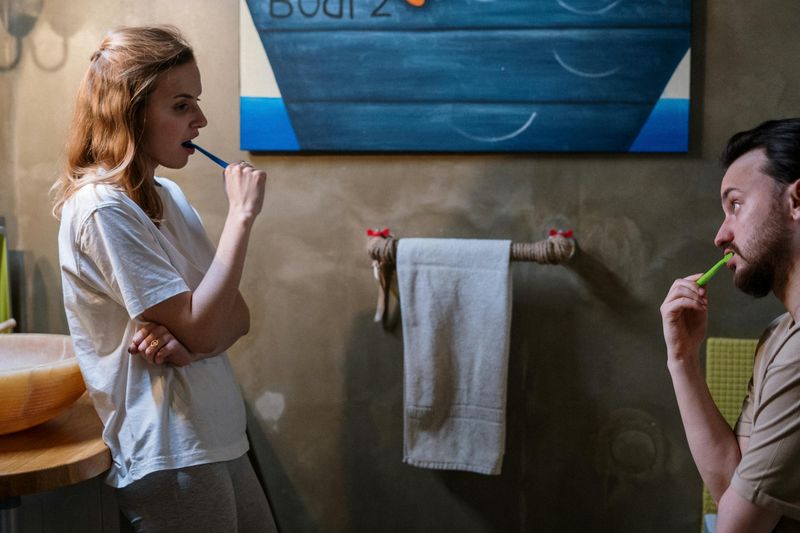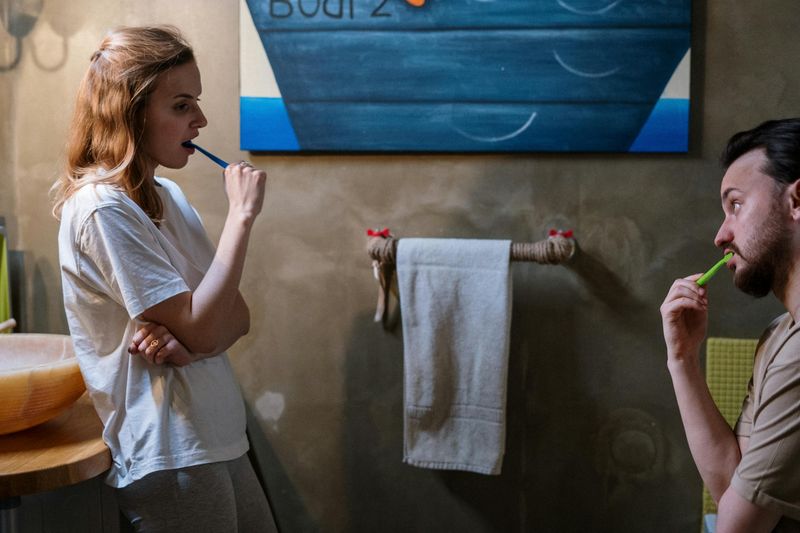12 Lifestyle Adjustments Men May Face in Committed Relationships

Entering a committed relationship brings significant changes to a man’s life. These adjustments aren’t just about sharing living space or Netflix passwords—they often involve fundamental shifts in priorities, habits, and perspectives. While these changes can be challenging, they also represent opportunities for personal growth and deeper connection with a partner.
1. Reshuffling the Calendar

The solo days of spontaneous weekend trips with buddies or late-night gaming marathons often give way to a more balanced schedule. Men find themselves negotiating time between their relationship, work responsibilities, personal hobbies, and maintaining friendships.
Learning to prioritize quality time with a partner doesn’t mean abandoning personal interests—it means finding a sustainable rhythm. Many men discover that communicating clearly about time needs prevents resentment from building on either side.
The adjustment might feel restrictive initially, but most guys eventually appreciate how intentional time management leads to richer experiences in all areas of life. The key is finding balance rather than sacrifice.
2. Money Talks Get Real

Financial conversations transform from personal decisions to partnership discussions. Suddenly, that impulse purchase of premium concert tickets requires consideration of joint savings goals and shared expenses.
Many men find themselves adapting to new levels of financial transparency—sharing salary details, debt information, and spending habits that were previously private matters. This shift can feel vulnerable but builds crucial trust.
Joint accounts, budget apps, and regular money check-ins become part of relationship infrastructure. While the adjustment might initially feel like losing financial freedom, most men eventually value the security and teamwork that comes with aligned financial planning.
3. Opening the Emotional Toolbox

For many guys raised with messages like “man up” or “tough it out,” committed relationships require dusting off emotional skills that might be rusty. Learning to recognize feelings beyond the basics of happy, angry, or hungry becomes essential relationship maintenance.
Men often discover that bottling emotions leads to unexpected explosions or disconnection. Practicing vulnerability—sharing fears, expressing hurt, or admitting uncertainty—creates intimacy that physical connection alone cannot build.
This adjustment might feel awkward at first, like speaking a half-forgotten language. The payoff comes when emotional fluency allows for authentic connection and problem-solving instead of circular arguments or silent treatment.
4. Friend Circles Evolve

The bachelor crew that gathered weekly for poker night gradually transforms as relationship commitments reshape social calendars. Men often notice their social circles shifting toward more couple friends and family gatherings.
This doesn’t mean abandoning old friendships, but it does require intentionality to maintain them. Many guys find themselves navigating the delicate balance between nurturing their relationship and preserving important friendships.
Weekend plans increasingly involve compromises and consideration of a partner’s social preferences. While sometimes challenging, this adjustment often expands a man’s social world, introducing diverse connections and experiences that wouldn’t have happened in his solo days.
5. Decision-Making Becomes Collaborative

The days of making major life decisions solo—like relocating for a job or buying a new car—transform into partnership conversations. Men adjust to considering how choices impact their partner and the relationship’s future.
This shift doesn’t mean losing autonomy but rather embracing interdependence. Learning to navigate joint decision-making requires developing new communication muscles and sometimes sacrificing personal preferences for relationship harmony.
Many guys find that collaborative decisions actually lead to better outcomes than those made alone. The adjustment process might involve occasional friction, but mastering the art of making choices together builds a foundation for tackling life’s bigger challenges as a team.
6. Daily Routines Merge and Adapt

Morning routines, eating habits, and household rhythms undergo significant adjustments when two lives intertwine. The night owl may find himself adapting to his early-bird partner’s schedule, while the health-conscious guy might relax some dietary restrictions to enjoy occasional pizza nights.
Small compromises accumulate in daily life—thermostat settings, bathroom schedules, and television preferences all become negotiation points. Men often discover that flexibility around these minor issues prevents unnecessary friction.
Creating new shared routines becomes part of building relationship identity. While adjusting ingrained habits can feel uncomfortable initially, most men eventually appreciate how merged routines create a sense of stability and belonging in their partnership.
7. Career Ambitions Get Recalibrated

The single-minded career focus that once drove 70-hour workweeks often shifts when relationship priorities enter the equation. Men find themselves weighing professional opportunities against relationship impacts—considering factors like relocation stress or travel demands.
This doesn’t mean abandoning ambition but rather redefining what success looks like. Many guys discover that career satisfaction increases when work complements rather than competes with relationship fulfillment.
Practical adjustments might include setting firmer boundaries around work hours, negotiating remote options, or making strategic career moves that support long-term relationship goals. While challenging, this recalibration often leads to more sustainable and fulfilling professional paths.
8. Arguments Evolve Beyond Winning

Many men enter relationships with conflict strategies built around either winning the point or avoiding confrontation entirely. Committed partnerships quickly reveal the limitations of these approaches, pushing guys to develop more productive conflict resolution skills.
Learning to listen without immediately formulating counterarguments becomes essential relationship maintenance. Men often discover that validating their partner’s feelings—even when disagreeing with their perspective—defuses tension more effectively than logical debate.
The adjustment from seeing arguments as battles to viewing them as opportunities for understanding takes patience and practice. While challenging, mastering this shift creates a relationship where both partners feel heard and respected, even during disagreements.
9. Personal Space Gets Redefined

The boundary between individual identity and couple identity requires thoughtful navigation. Men often adjust from complete privacy to appropriate transparency, learning which aspects of life to share fully and which personal boundaries to maintain.
This might mean creating designated alone time or personal spaces within shared living arrangements. Many guys discover that clearly communicating their need for occasional solitude prevents their partner from misinterpreting distance as rejection.
Finding this balance feels like calibrating a sensitive instrument—too much independence can create disconnection, while too little leads to identity loss. The adjustment process involves honest conversations about needs and expectations, resulting in boundaries that support both individual well-being and relationship closeness.
10. Future Vision Extends Beyond Next Weekend

The horizon of planning expands dramatically in committed relationships. Men who previously focused on immediate goals find themselves discussing five-year plans, retirement strategies, and legacy considerations.
This shift requires developing comfort with uncertainty while still making commitments. Many guys experience anxiety during this adjustment, balancing the desire for security with the reality that life brings unexpected turns.
Practical manifestations include conversations about family planning, housing decisions based on school districts, or career moves aligned with long-term relationship goals. While sometimes overwhelming, this expanded timeframe often brings a satisfying sense of purpose and direction that spontaneity alone cannot provide.
11. Intimacy Becomes Multi-Dimensional

Physical connection in committed relationships evolves beyond the initial passionate phase into something more complex and enduring. Men adjust to understanding that emotional intimacy directly influences physical connection—and that maintaining both requires intentional effort.
Communication about desires, preferences, and expectations becomes increasingly important. Many guys discover that vulnerability about intimate needs—though initially uncomfortable—leads to deeper satisfaction for both partners.
The quality-over-quantity shift might require adjusting expectations, especially during stressful life periods or health challenges. While this adjustment can be challenging, most men ultimately value the depth and security of intimacy that evolves through commitment and open communication.
12. Digital Life Gets Relationship-Conscious

Social media behaviors and digital boundaries shift significantly in committed relationships. Men often adjust their online interactions—reconsidering private messaging with certain contacts or sharing relationship details publicly.
Phone habits transform too, with many guys finding themselves setting devices aside during quality time or adjusting notification settings to prevent digital distractions. These small changes acknowledge how technology impacts relationship attention and presence.
Discussions about what’s appropriate to share online become important relationship territory. While this adjustment might initially feel like giving up digital freedom, most men eventually appreciate how mindful technology use enhances real-life connection with their partner.

Comments
Loading…